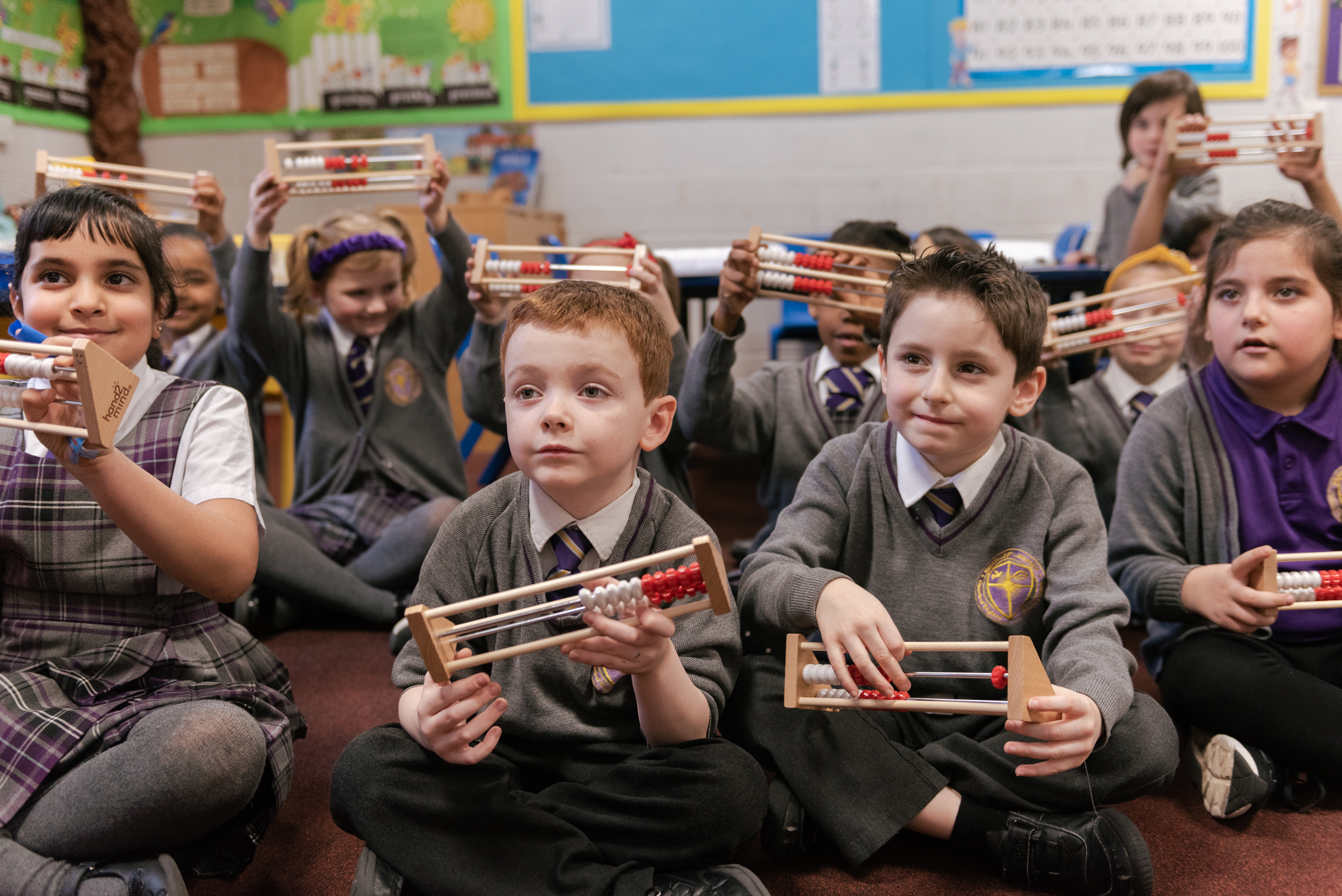Maths
Mathematical Intent
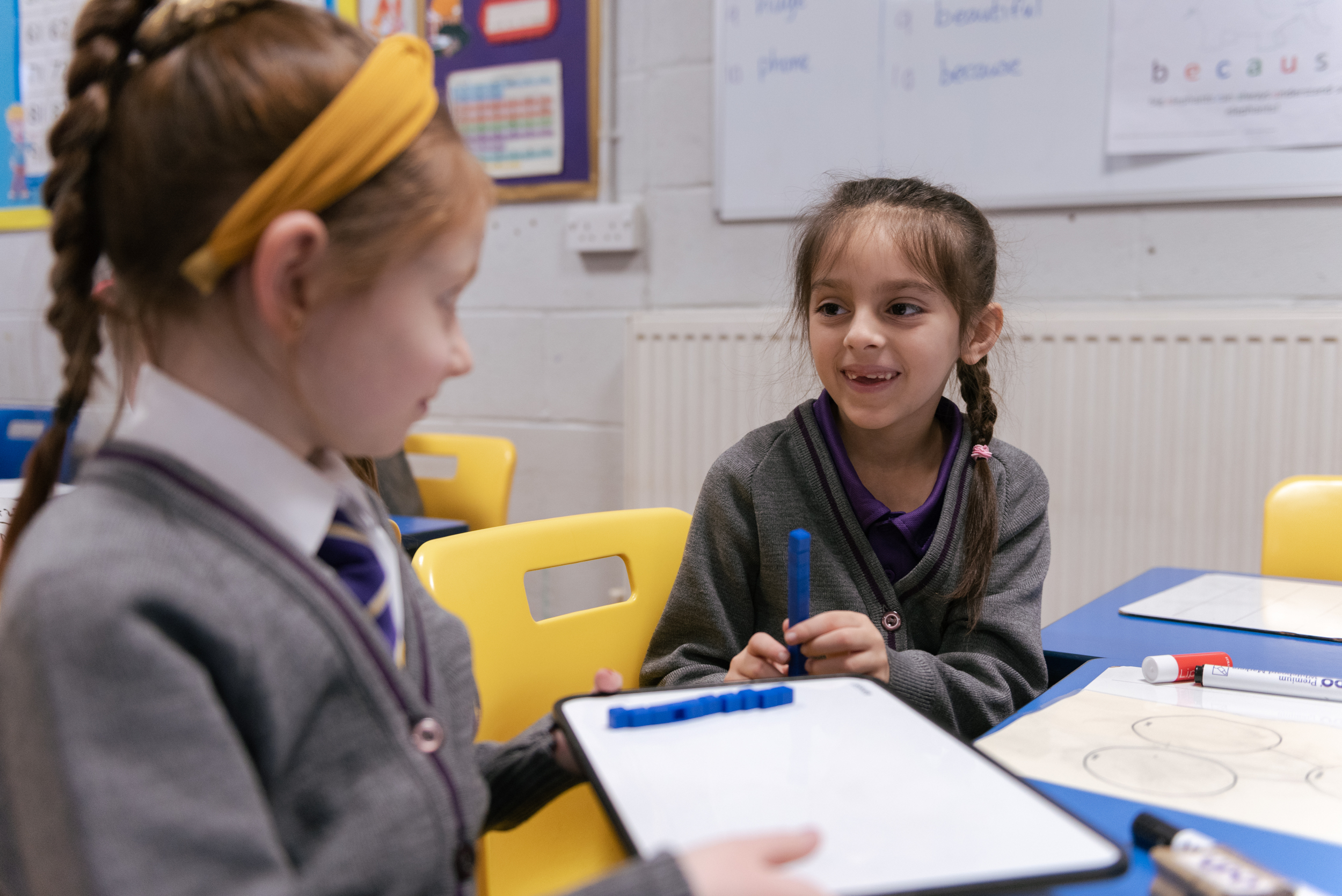
At Kirkdale St Lawrence CE School Primary School, our Mathematics Mastery curriculum has been developed to ensure every child can achieve excellence in mathematics. Children can experience a sense of awe and wonder as they solve a problem for the first time, discover different solutions and make links between different areas of mathematics. We provide pupils with a deep understanding of the subject through a concrete, pictorial and abstract approach. This ensures pupils fully understand what they are learning.
At KSL, we intend to:
- Allow all children, whatever their ability, to access high quality, engaging maths lessons that challenge them while developing a love of the subject.
- Provide our children with opportunities to explore maths in a variety of contexts so that they understand the importance of maths in different areas of the curriculum.
- Develop independence, confidence and resilience in our pupils so that they are prepared to take risks in their mathematical problem-solving.
- Ensure that children’s basic skills are secure so that they can apply their skills through problem-solving in real-life contexts.
Implementation
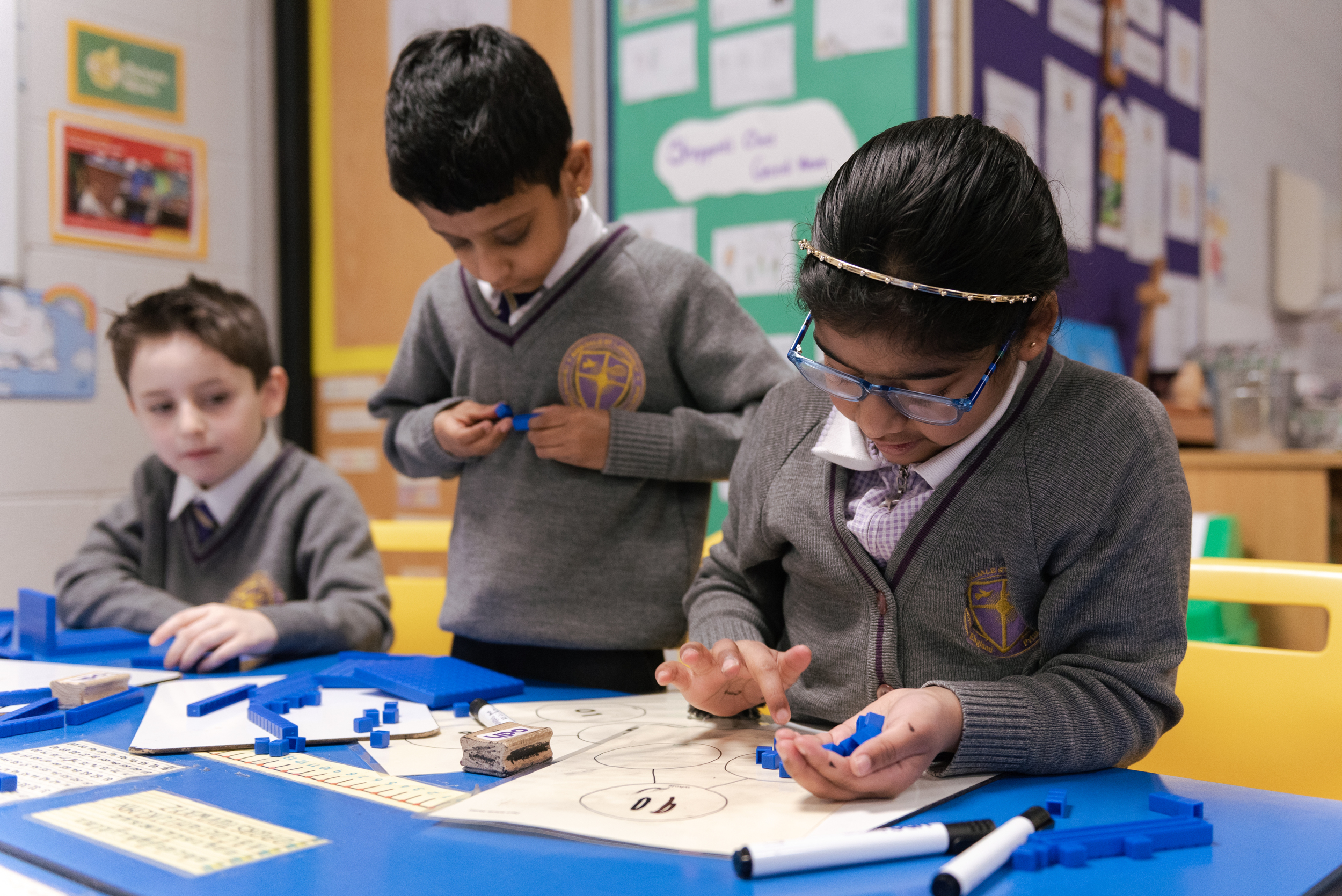
At Kirkdale St Lawrence CE Primary School we feel the best way to achieve the aims set out by the National Curriculum is through adopting a Mastery approach. We use White Rose mixed age plans to facilitate the delivery of this approach. We use a number of resources to support children in their maths lessons. These include NCETM resources, Twinkl, Classroom secrets and White Rose activities.
When planning for objective coverage, teachers are expected to take the following mastery strategies into account:
● Small steps
● Implementing the Concrete, Pictorial and Abstract (CPA) approach to introduce, explore and apply mathematical concepts
● Considering key questions and mathematical vocabulary at the point of unit planning
● Multiple opportunities for verbal and written/drawn reasoning (explaining and using mathematical vocabulary to explain methods or reasoning)
● Inclusion of relevant problem-solving opportunities, where children are expected to draw on and apply multiple concepts to address or approach a challenge
● Modelling of all skills and approaches
● Modelling and sharing of efficient and accurate application of methods
● Opportunities to explore maths concepts/objectives at ‘greater depth’
● Include all learners, providing relevant support for those with additional needs (educational, medical or otherwise)
Our maths delivery follows the following process
FLUENCY --> VARIED FLUENCY--> REASONING / PROBLEM SOLVING
Individual lessons follow this general structure
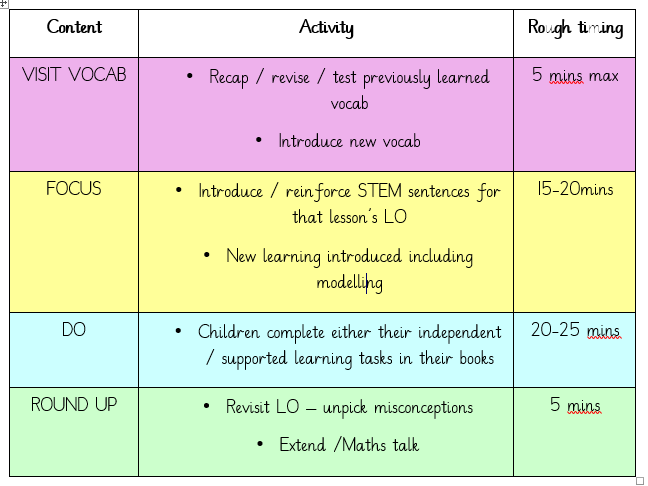
In addition to our daily maths lessons children get additional maths in the form of "Maths Meeting" sessions. The purpose of these sessions is to consolidate basic skills / maths facts. These take place during our afternoon timetable.
Impact
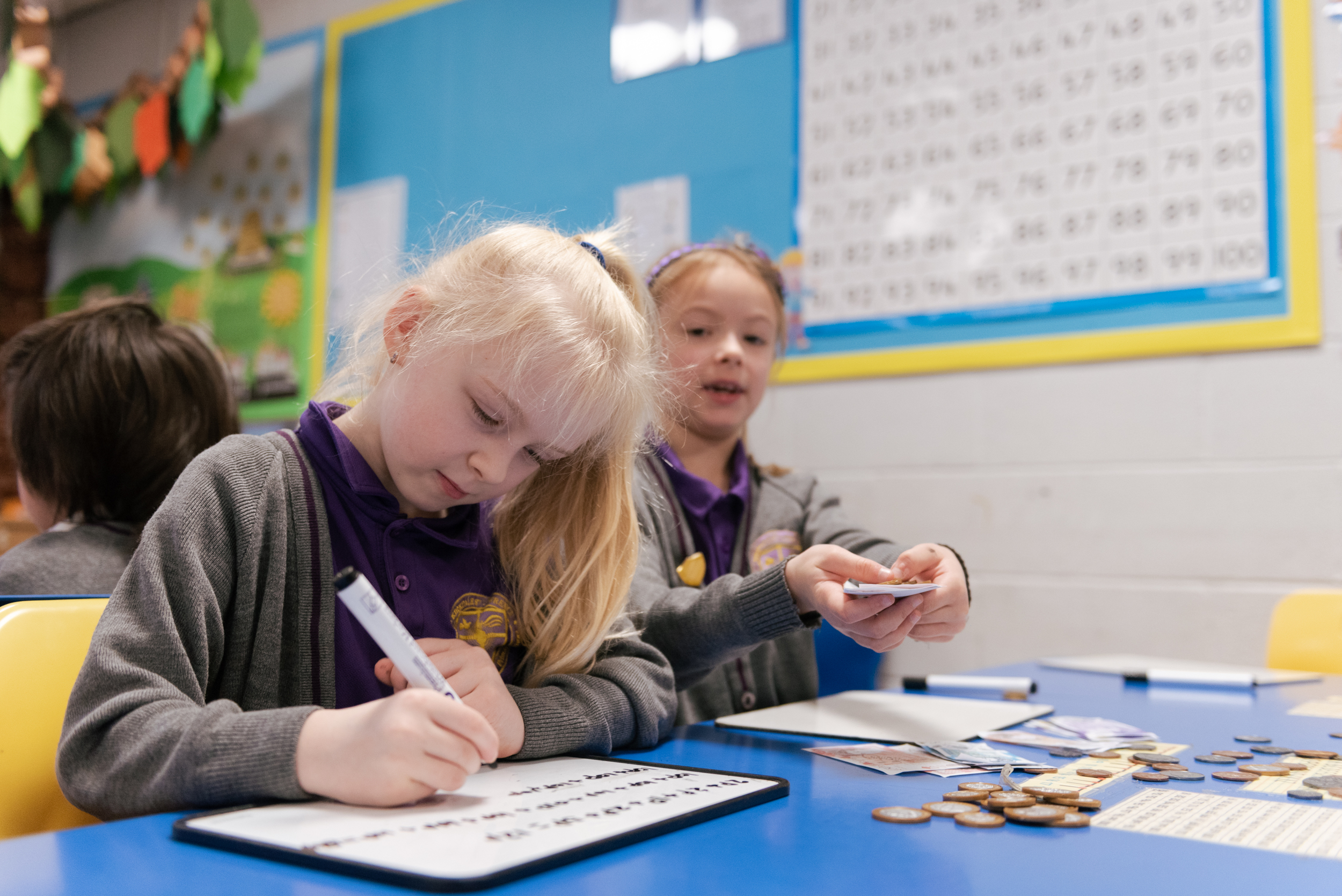
The exploration of mathematics should be interactive and engaging, with content made relevant to children’s real-world experiences and contextualised thus to support consolidation and retainment of knowledge and skill. Children should approach mathematical study with confidence and enthusiasm, and view tasks and challenges that call for application of varied knowledge across units of work and the selection of multiple skills with self-assurance and a willingness to collaborate. Approach and response to reasoning activities should improve term on term, with the expectation that by the end of the year, children are happy to accurately define and use mathematical vocabulary introduced by their teacher, as well as utilise stem sentences to complete mathematical statements or reasoning. Teaching and support staff should also see this period of implementation as an opportunity to highlight and further improve concepts that are received well and have clear impact on progress and learning, while also analysing and evaluating practice that needs to be addressed, reviewed or replaced.
